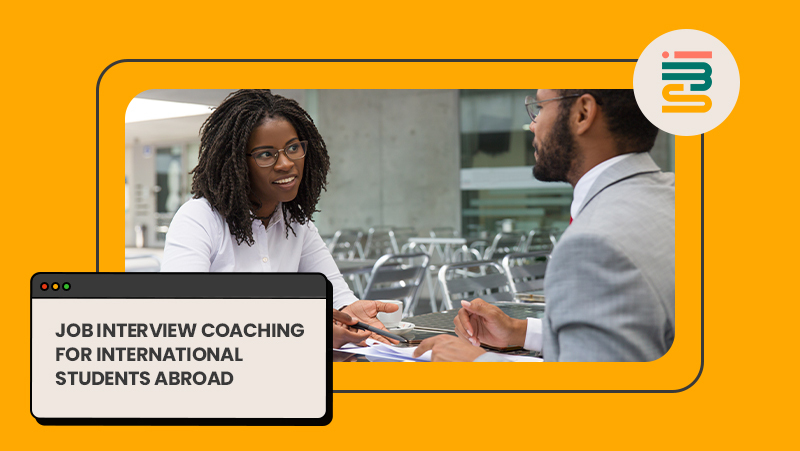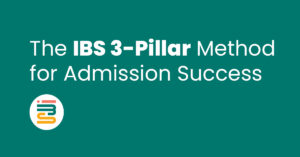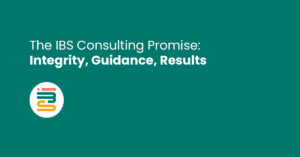Attempting job interviews as an international student abroad presents unique challenges, from cultural differences to unfamiliar interview formats.
In this guide, we talk about essential strategies for mastering the art of interviewing. From honing your communication skills to understanding industry dynamics, we’ll equip you with the tools to excel in any interview scenario.
Whether you’re preparing for your first job interview or seeking to improve your interviewing prowess, this job interview coaching comprehensive resource will help you showcase your talents and secure coveted opportunities in today’s competitive job market.
Let’s embark on a journey to elevate your interview performance and unlock your potential.
Read Also: Job search tips for Ghanaians
Master Common Interview Questions
As international students pursue career opportunities abroad, adeptness in job interviews becomes paramount. To pass this crucial phase, mastering common interview questions is essential. Prepare meticulously to address typical inquiries tailored to international student experiences and expectations.
Learn more: Three Questions to Ask After a Job Interview
Prepare Answers to Typical Questions
Preparing responses to common interview queries is crucial for international students seeking career opportunities abroad. Research prevalent questions tailor answers to showcase relevant experiences and skills, and practice articulating them confidently. Incorporate cultural variation and nonverbal cues into your responses for added professionalism. Thorough preparation ensures you can effectively convey your qualifications, increasing your chances of success in job interviews abroad.
Practice Responding Under Pressure
Simulating high-pressure interview scenarios is essential for international students preparing for career opportunities abroad. Engage in mock interviews to replicate real-life situations, allowing you to refine your responses under stress.
Curious about the benefits of elevating your career to the next level? Reach out to IBS Consulting and book your FREE consultation to discover more!
Book Your Free Consultation
This practice builds confidence, sharpens communication skills, and prepares you to articulate your qualifications effectively, even in challenging circumstances. By practicing responding under pressure, you’ll be better equipped to excel in job interviews and secure coveted positions abroad.
This strategic approach equips international students with the prowess to excel in diverse interview settings, securing coveted career opportunities abroad.
Read Also: Job opportunities in the USA for Ghanaians
Research the Company Thoroughly
Conducting comprehensive research on prospective employers is crucial for international students seeking career opportunities abroad. Dive deep into the company’s background, values, and recent developments to demonstrate genuine interest and alignment. Explore its industry position, competitors, and notable achievements to gain valuable insights.
Thoroughly understanding the company’s culture, mission, and goals enables you to tailor your responses and showcase how you can contribute effectively. By researching the company thoroughly, you’ll position yourself as a knowledgeable and proactive candidate, increasing your chances of success in job interviews abroad.
Learn About the Industry and Position
International students aspiring to career success abroad must delve into the industry landscape and the specifics of the desired position. Understanding industry trends, challenges, and opportunities provides valuable context for discussing your suitability for the role.
Research the company’s competitors, market position, and recent developments to demonstrate industry knowledge. Additionally, familiarize yourself with the responsibilities, qualifications, and expectations associated with the position.
By acquiring comprehensive insights into both the industry and the role, you can effectively align your skills and experiences during job interviews, enhancing your prospects of securing employment abroad.
Read Also: Career Success Strategies for Ghanaians studying abroad
Find Details to Refer To During Interviews
Gathering specific details about the company and its achievements enables international students to enrich their interview responses. Identify notable projects, awards, or initiatives the company has undertaken and incorporate them into your answers. Referencing these details demonstrates your genuine interest and understanding of the organization.
Additionally, highlighting how your skills or experiences align with these aspects showcases your suitability for the role. By finding pertinent details to discuss during interviews, you enhance your credibility and leave a lasting impression on interviewers, increasing your chances of success in securing job opportunities abroad.
By meticulously researching both the company and industry, international students position themselves as informed and engaged candidates, poised to make meaningful contributions in their desired roles abroad.
Interested in learning more about the benefits of professional development? Call IBS Consulting to schedule a FREE consultation right away!
Book Your Free Consultation
Read Also: LinkedIn profile optimization guide
Polish Your Appearance and Body Language
For international students, projecting professionalism through attire and demeanor is paramount in job interviews abroad. Paying meticulous attention to appearance and body language sets the stage for a positive first impression.
Choose an Appropriate Outfit
Selecting the right attire is crucial for international students preparing for job interviews abroad. Research the company’s dress code and industry standards to ensure your outfit aligns with expectations. Opt for professional attire that reflects your respect for the interview setting while showcasing your personal style.
A well-fitted suit or business attire, paired with polished shoes and minimal accessories, is often a safe choice. By choosing an appropriate outfit, you present yourself as professional, confident, and attentive to detail, making a positive impression on potential employers during job interviews abroad.
Read Also: Your First Job in Canada As a Ghanaian Student
Maintain Confident Posture and Eye Contact
Demonstrate confidence and assertiveness through upright posture and consistent eye contact. Projecting openness and engagement through nonverbal cues fosters rapport with interviewers and conveys readiness for the demands of the position.
By conscientiously refining both appearance and body language, international students position themselves as polished and professional candidates, ready to excel in job interviews abroad.
Tell Your Story Effectively
Crafting a compelling narrative is essential for international students navigating job interviews abroad. Effectively articulating your experiences and skills sets you apart as a candidate capable of making meaningful contributions to prospective employers.
Highlight Relevant Experience and Skills
Emphasize experiences and skills that align with the job requirements and demonstrate your ability to thrive in diverse settings. Showcase your adaptability, problem-solving abilities, and cultural competence to resonate with interviewers.
Read Also: Stand Out in the Job Market
Give Examples Using the STAR Method
Utilize the Situation, Task, Action, Result (STAR) method to structure your responses with concrete examples. Illustrate your achievements and contributions through real-life scenarios, showcasing your value as a potential asset to the organization.
By strategically telling your story and employing the STAR method, international students can effectively communicate their qualifications and stand out in job interviews abroad.
Read Also: Questions to ask after a job interview
Follow Up Professionally
After the interview, maintaining proactive communication is vital for international students seeking job opportunities abroad. Professional follow-up actions demonstrate gratitude, enthusiasm, and a genuine interest in the position, leaving a lasting impression on potential employers.
>Contact us
Send Thank You Notes Promptly
Craft personalized thank-you emails expressing appreciation for the opportunity to interview. Reiterate your interest in the role and briefly recap key discussion points to reinforce your candidacy.
Contact Referrals for Feedback
Reach out to contacts or referrals within the company to solicit constructive feedback on your interview performance. Utilize their insights to identify areas for improvement and enhance future interview strategies.
By adhering to professional follow-up protocols, international students can leave a positive impression and strengthen their candidacy for job opportunities abroad.
Read Also: How to check in after an interview
Seek Additional Practice and Coaching
International students striving for success in job interviews abroad should prioritize ongoing practice and professional guidance. Investing in additional preparation and coaching enhances confidence and proficiency, ultimately increasing the likelihood of securing desirable positions.
Schedule Mock Interviews
Participate in mock interviews to simulate real-life scenarios and receive constructive feedback. These practice sessions allow you to refine your communication skills, identify areas for improvement, and build confidence in your abilities.
Work with a Career Counselor
Engage the expertise of career counselors specialized in supporting international students. Collaborate with professionals who can offer personalized strategies, resources, and guidance tailored to your unique background and career goals.
By actively seeking additional practice and professional support, international students can enhance their interview performance and position themselves for success in the competitive job market abroad.
Read Also: Applying for job with no experience
Conclusion
Mastering job interviews as an international student abroad is achievable with strategic preparation and practice. By implementing the tips and techniques outlined in this guide, you can confidently navigate the interview process and secure rewarding career opportunities.
Ready to elevate your interview skills to the next level? Take the first step towards success by booking a free consultation to get personalized job interview coaching today. Let us empower you to unlock your full potential and thrive in your professional journey abroad.
FAQS
How should international students prepare for cultural differences in job interviews?
International students should research cultural norms and etiquette relevant to the country where they are applying for jobs. Adapting their communication style, body language, and attire to align with local customs can help them navigate cultural differences effectively.
What are some common nonverbal communication mistakes to avoid during interviews?
Nonverbal communication plays a significant role in job interviews. International students should be mindful of maintaining eye contact, using appropriate gestures, and displaying confident body language. Avoiding fidgeting, slouching, or appearing disinterested can enhance their professional image.
How can international students negotiate job offers effectively?
Negotiating job offers requires research, preparation, and assertiveness. International students should assess their market value, articulate their skills and experiences, and negotiate respectfully but confidently. Seeking guidance from mentors or career advisors can also help them navigate salary negotiations successfully
Where can international students find reliable online resources for interview preparation?
There are various online platforms offering resources specifically tailored to international students preparing for job interviews abroad. Websites, blogs, and forums dedicated to career development often provide valuable tips, sample interview questions, and industry insights to aid in preparation.
What are some strategies for managing stress and anxiety during job interviews?
International students can manage interview-related stress by practicing relaxation techniques, such as deep breathing and visualization. Additionally, thorough preparation, mock interviews, and positive self-talk can boost confidence and reduce anxiety levels.





